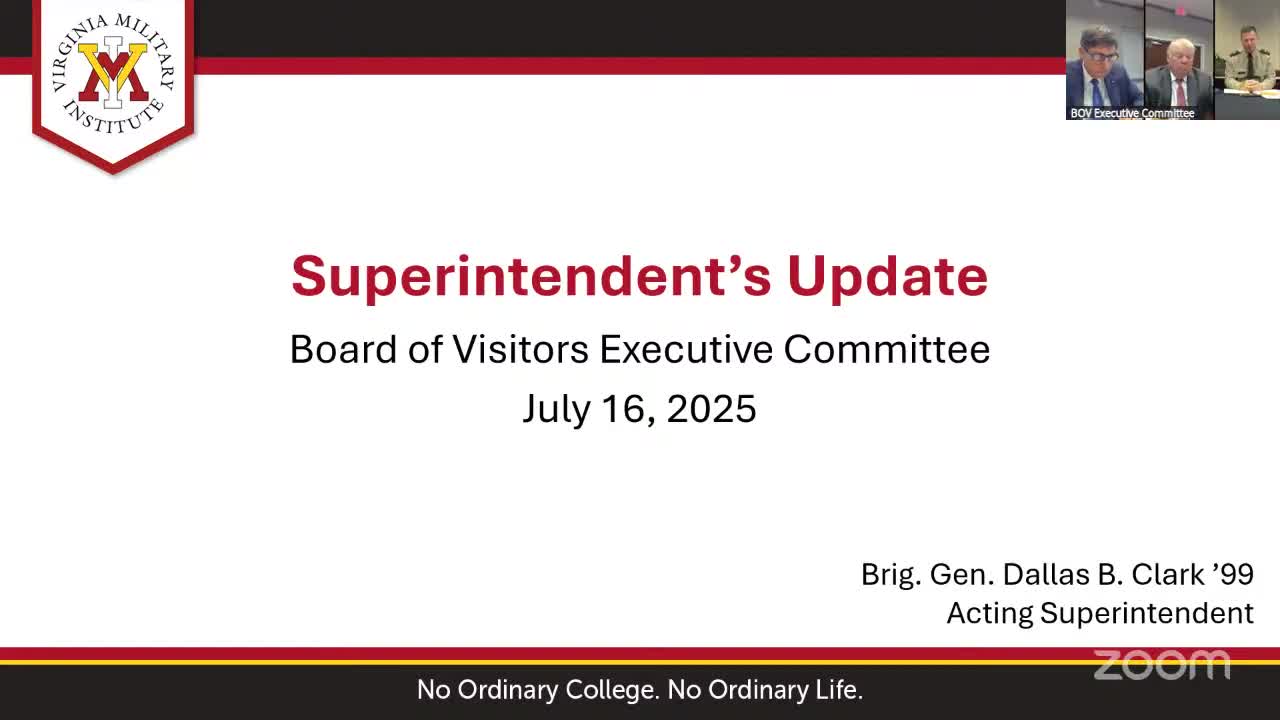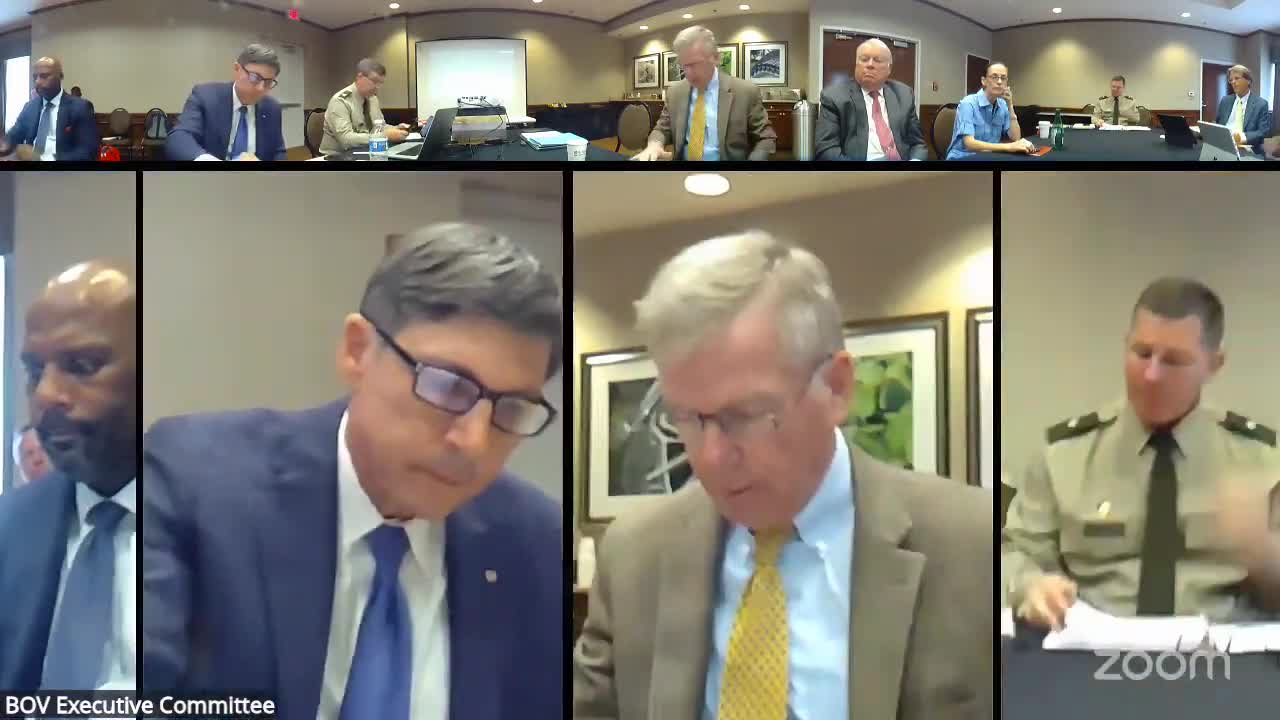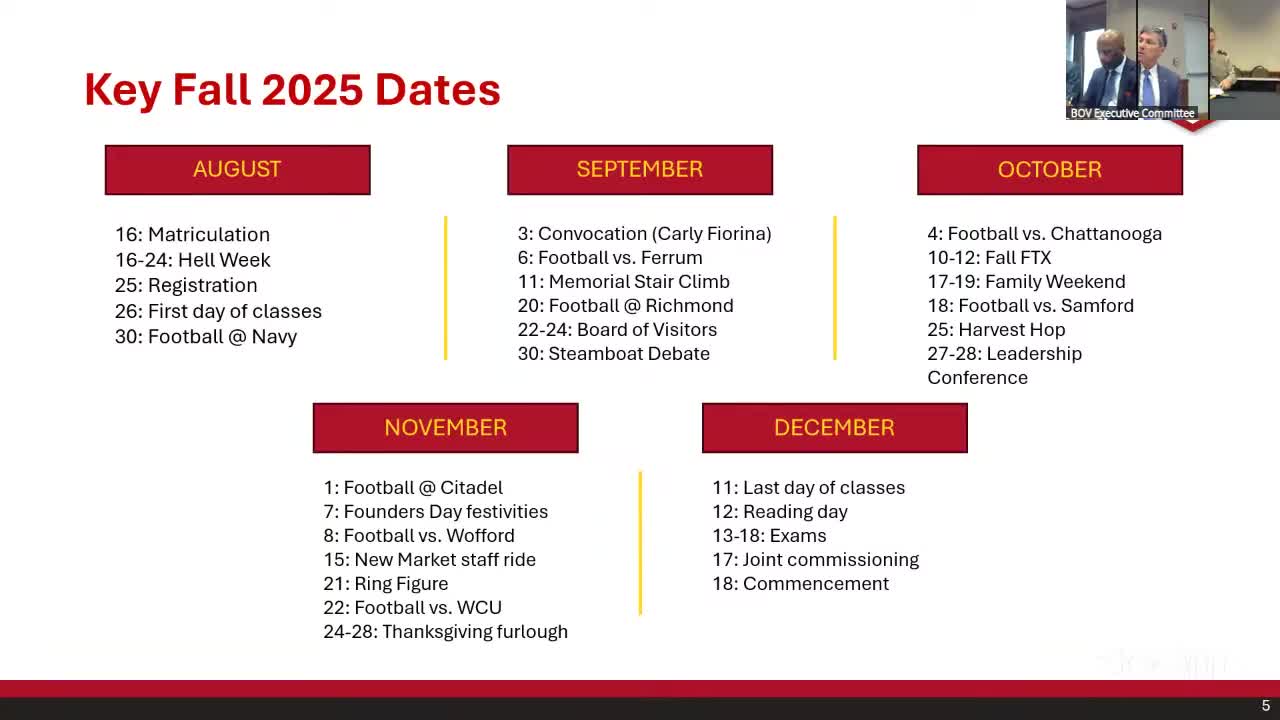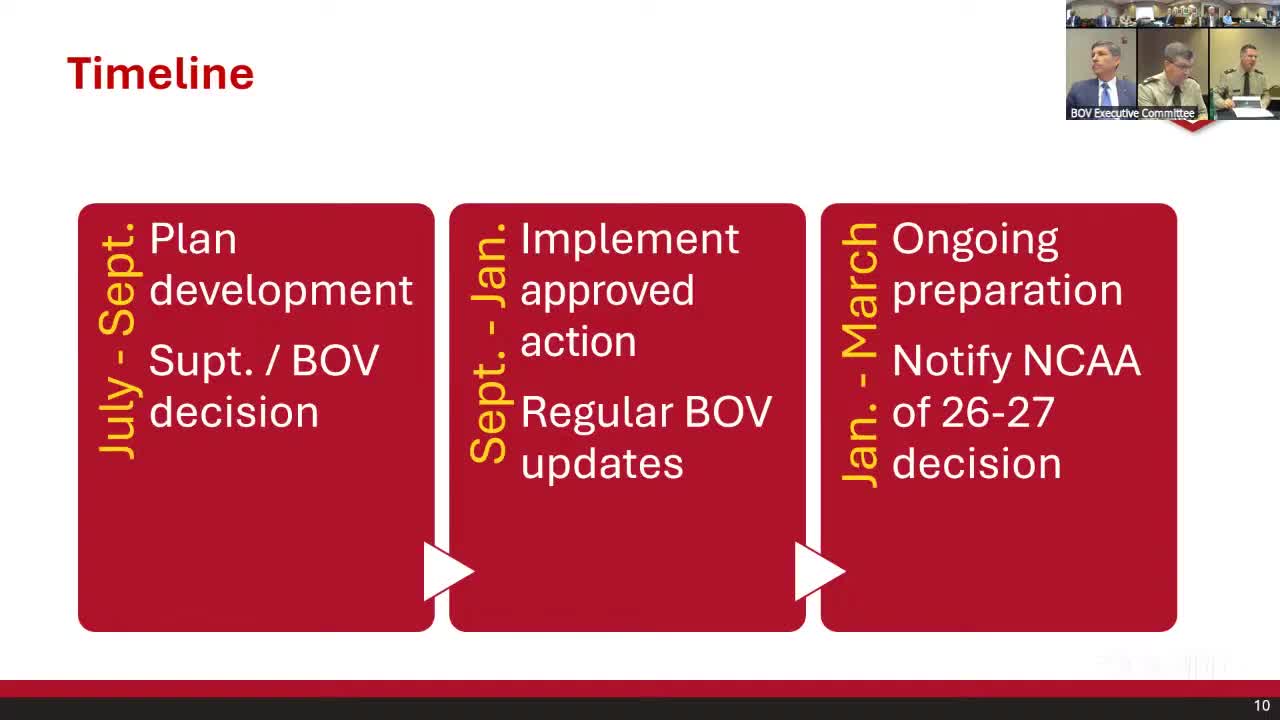Article not found
This article is no longer available. But don't worry—we've gathered other articles that discuss the same topic.

VMI reports enrollment, matriculation and summer construction updates; matriculation scheduled mid‑June

VMI search committee releases eight‑candidate slate for first‑round superintendent interviews

VMI to study NCAA ‘house’ settlement, opts out for 2025–26 and forms working group on NIL strategy

